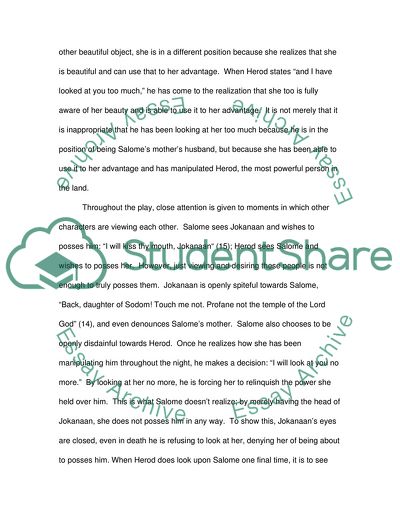Cite this document
(A Troubling Beauty: Salome by Oscar Wilde Essay Example | Topics and Well Written Essays - 1250 words, n.d.)
A Troubling Beauty: Salome by Oscar Wilde Essay Example | Topics and Well Written Essays - 1250 words. https://studentshare.org/visual-arts-film-studies/1716284-salome
A Troubling Beauty: Salome by Oscar Wilde Essay Example | Topics and Well Written Essays - 1250 words. https://studentshare.org/visual-arts-film-studies/1716284-salome
(A Troubling Beauty: Salome by Oscar Wilde Essay Example | Topics and Well Written Essays - 1250 Words)
A Troubling Beauty: Salome by Oscar Wilde Essay Example | Topics and Well Written Essays - 1250 Words. https://studentshare.org/visual-arts-film-studies/1716284-salome.
A Troubling Beauty: Salome by Oscar Wilde Essay Example | Topics and Well Written Essays - 1250 Words. https://studentshare.org/visual-arts-film-studies/1716284-salome.
“A Troubling Beauty: Salome by Oscar Wilde Essay Example | Topics and Well Written Essays - 1250 Words”. https://studentshare.org/visual-arts-film-studies/1716284-salome.


